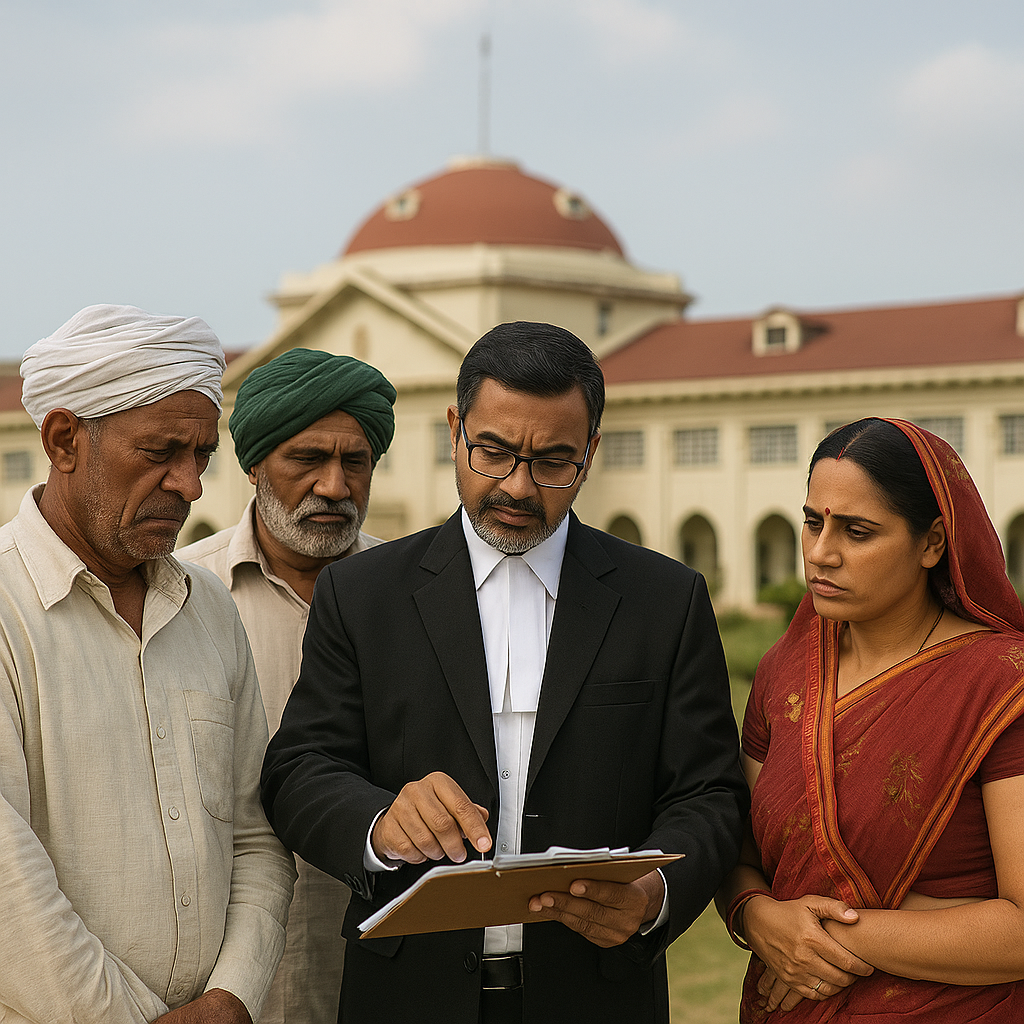Simplified Explanation of the Judgment
In 2020, the Patna High Court delivered an oral judgment in a case filed as a Public Interest Litigation (PIL) concerning the pricing of sugarcane supplied by local farmers to a private sugar mill. The petition was brought by a farmer organization along with an individual cane grower, alleging that their produce was wrongly classified as “rejected quality” cane, leading to unfairly reduced payments.
The petitioners had supplied a particular variety of cane (COP-2061) to Magadh Sugar and Energy Ltd. (Bharat Sugar Mill, Sidhwalia, Gopalganj). They argued that the cane should have been categorized as “General/Medium” quality, which would entitle them to ₹290 per quintal, instead of “Rejected” quality at ₹265 per quintal. They claimed that this misclassification resulted in a financial loss and sought a High Court order directing proper payment.
The petitioners stated that they had made representations to the Agriculture Ministry and the Cane Commissioner of Bihar, but their grievances were ignored. They filed this case as a PIL on behalf of cane growers in East Champaran.
Arguments by the petitioners:
- COP-2061 was officially categorized as “general” (medium quality) in government records.
- The mill had wrongly treated their cane as rejected quality, causing loss to farmers.
- The government should ensure proper quality assessment and payment.
Arguments by the State and the sugar mill:
- The State submitted that in a June 2018 meeting chaired by the Minister for Cane Industries, COP-2061 was already confirmed as “Samanya” (general) quality, and there was no official record of it being treated as “rejected.”
- The sugar mill argued that the PIL was not maintainable, since the dispute was essentially about private payments between farmers and a private mill.
- They relied on Supreme Court rulings which held that writ petitions cannot be used to enforce private contractual obligations unless a public duty is involved.
- It was further pointed out that the Bihar Sugarcane (Regulation of Supply and Purchase) Act, 1981, and its Rules provide a clear mechanism (Section 46 and Rule 34) for resolving price disputes through the Cane Officer and Collector. The petitioners had not used this statutory remedy.
Court’s analysis:
The Bench emphasized that:
- The dispute was private in nature, concerning individual farmers’ claims of reduced payment against a private sugar mill. Hence, it could not be pursued as a PIL “pro bono publico.”
- Section 46 of the Bihar Sugarcane Act, 1981 clearly prescribes how disputes over sugarcane price should be decided, and appeals can be made to the Collector.
- Where an alternative statutory remedy exists, the High Court normally will not exercise jurisdiction under Article 226 of the Constitution, except in exceptional cases like violation of fundamental rights, breach of natural justice, or lack of jurisdiction.
- Since none of these exceptions applied, the writ petition was not maintainable.
Result:
The Court dismissed the PIL but clarified that the petitioners were free to avail themselves of the alternative statutory remedies available under the Act.
Significance or Implication of the Judgment
This judgment has important implications for both farmers and farmer associations in Bihar:
- Private disputes cannot be disguised as PILs: Farmers must approach the proper statutory authority instead of filing PILs for personal payment disputes.
- Proper legal forum: The Bihar Sugarcane Act, 1981 provides a dedicated dispute resolution system through the Cane Officer and the Collector. Farmers should use this route for grievances regarding cane price or quality classification.
- Judicial discipline: The High Court reiterated that it will not bypass alternative remedies unless a case involves fundamental rights, denial of natural justice, or lack of jurisdiction.
- Policy implication: While the farmers’ concerns about fair payment are genuine, they must be addressed through the statutory mechanism, not PILs. This ensures that the High Court’s time is reserved for matters of wider public interest.
Legal Issue(s) Decided and the Court’s Decision
- Whether the PIL was maintainable for a sugarcane payment dispute against a private mill?
- Decision: No.
- Reasoning: Dispute was private, not a public interest matter; remedy lies under the Bihar Sugarcane Act, 1981.
- Whether High Court could intervene under Article 226 despite alternative remedy?
- Decision: No.
- Reasoning: Alternative statutory remedy exists under Section 46 of the 1981 Act and Rule 34 of the 1978 Rules; exceptions did not apply.
Judgments Referred by Parties
- General Manager, Kisan Sahkari Chini Mills Ltd., Sultanpur, U.P. v. Satrughan Nishad & Ors., (2003) 8 SCC 639 – Supreme Court ruling that writ petitions against private mills are not maintainable unless public duties are involved.
Judgments Relied Upon or Cited by Court
- Shri Anandi Mukta Sadguru Shree Muktajee Vandas Swami Suvarna Jayanti Mahotsav Trust v. V.R. Rudani, (1989) 2 SCC 691 – Writ jurisdiction against private bodies only if they discharge public duty.
- Whirlpool Corporation v. Registrar of Trade Marks, (1998) 8 SCC 1 – High Courts normally should not entertain writ petitions when an effective alternative remedy exists, except in exceptional circumstances.
Case Title
Kisan Sangharsh Samiti & Anr. v. State of Bihar & Ors.
Case Number
Civil Writ Jurisdiction Case No. 20252 of 2018
Citation(s)
2021(2) PLJR 8
Coram and Names of Judges
Hon’ble Mr. Justice Dinesh Kumar Singh
Hon’ble Mr. Justice Anil Kumar Sinha
Names of Advocates and who they appeared for
- For the petitioners: Mr. Madhurendra Kumar
- For the State: Mr. Yogendra Pd. Sinha, AAG-7; Mr. Shankar Kumar, A.C. to AAG-7
- For the sugar mill (respondent no. 6): Mr. Y.V. Giri, Mr. Ashish Giri, Mr. Rajat Kumar Tiwary
Link to Judgment
MTUjMjAyNTIjMjAxOCMxI04=-eVm0JaKY3cs=
If you found this explanation helpful and wish to stay informed about how legal developments may affect your rights in Bihar, you may consider following Samvida Law Associates for more updates.









